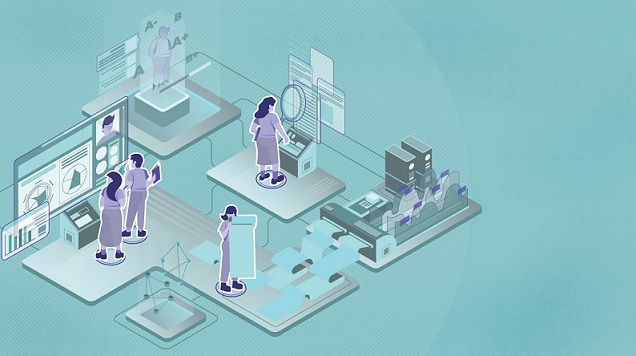We live in a data-driven world. What does that mean? Not only do we go through life with so much information readily and instantly available for us, how we see the world around us also evolves because of this immersion.
The previous era was all about computing, the power of the machine and what it does to shape and accelerate our work, our thriving economies. Now, we are heading to a new era: the age of data and personalization.
Just like the era of mass computing, the age of data transforms information into more than just a set of codes, bits and bytes of readily exchangeable and transferable abstractions. Today, data and the concurrent analytic insights that it produces drives growth in almost everything. From businesses to the global economy, to grassroots organizations and policy-making, or sometimes even the smallest decisions: which way to commute, which restaurant to eat at, what clothes to buy.
Our lives are so intertwined with the digital world that it’s hard to imagine life without it. A data-driven world moves information and removes barriers to access, points of friction between industries, physical limitations. It inspires creativity and imagination, and propels humanity to make the world a better place to live in.
In the face of these changes, how do we ensure that young learners today are not left out in the vast oceans of information? As we shift to the age of data, it is important to understand that a holistic approach toward digital learning is key to securing our children’s future.
This is where the Whole Child Approach comes in. In a rapidly changing world, we are challenged to change the conversation and shift how we think and do things. Holistic education, through the vision of the Whole Child initiative, introduces new ways of engaging the age of data and personalization. The WCA does this by creating, supporting, and sustaining digital learning environments and materials that supplement and enhance a young learner’s journey in school and beyond.
Such a process involves not just tech gadgets, digital learning modules, and learning platforms: it goes well beyond that. It involves understanding the young learner as the center of the whole process, understanding that they all have unique ways of learning, ensuring that their personal and psycho-social growth are understood and adequately addressed. It involves raising the Whole Child with a learning community that cares for them, nurtures them, and helps them grow as responsible individuals with a commitment to helping build the nation forward.
As we move forward in the 21st Century and adjust to the radical changes brought about by the 4th Industrial Revolution, it is important to remember what sits at the core of a world undergoing digital transformation: the human person. With the Whole Child Approach, academic institutions and learning communities can help young learners become safe, healthy, supported, challenged, and engaged.
Through all these innovations and disruptions made possible by the advancement of technology, REX believes that our young learners today deserve only the best, a classroom for the future that is designed to help both educators and learners communicate, collaborate, think critically and creatively, and shape the future of education today.

To learn more about how REX is leading the industry forward with its suite of digital learning solutions, visit their website here: http://www.rexpublishing.com.ph/digital/
Reference: Jerome Samson / 09178961568 / Media Contact

